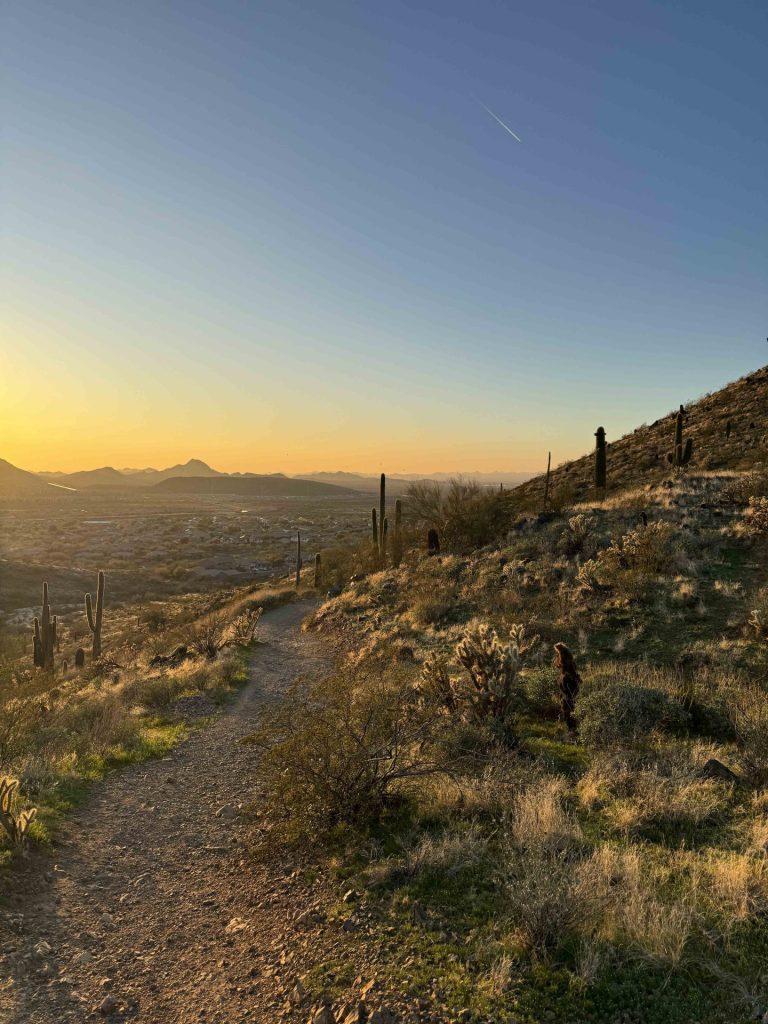The Age of Concrete

Elton reached the end of the page he was reading and scribbled down his last few notes, setting his pen on the table once he had finished and then closing the browser window. Overall, the session had been less than fruitful. There was a frustrating lack of information on megastructures and the rewards of his searching online were about as sparse as those he’d had in the engineering library. His civil engineering textbook had been a joke, barely mentioning the topic beyond a token entry in the glossary. Still, he felt like he’d managed to grasp at least a few of the basics, so he wouldn’t be going into tomorrow’s field trip totally unprepared. Elton brushed his teeth, undressed, set his alarm and got into bed. He was completely ready. His bag was packed, his route on the train planned and everything else that he needed would be waiting for him in the city. Then he’d get to see them for real again: Skyscrapers.
“You are now arriving in: Leeds,” spoke the synthetic voice of the announcer over the tannoy system. “Please mind the gap when you exit the train.”
Elton stepped off, took a few paces forward then turned in a circle to take in the scene. He’d had his face glued to the window for the last leg of the journey, admiring the sight of the city’s skyline and marvelling at its scale. This wasn’t the first time that he’d seen high-rise buildings; he’d made visits to other cities before. Nevertheless, it was a fresh thrill every time, this day in particular because it was the first time since he’d started studying. The first time he’d looked at them with a proper appreciation for what he was seeing. Now inside the train station he stood equally wide-eyed, amazed once more at the sheer volume of the place. Nothing in the township where he lived could compare. Reluctantly he dragged his eyes away from the architecture and searched for the exit, hustling over and flashing his rail pass over the reader before stepping through the turnstile. His field trip was set to start soon and he didn’t want to miss a moment of it.
Elton arrived at the meeting point a few minutes later. His fellow postgrad students and their lecturer Agatha were gathered in a small crowd, talking idly among themselves. He approached the group and made a few greetings. Some of his coursemates attended Keele University alongside him, while others were remote students. And he thought he had gone out of his way to minimize travel. Still, there was no way to conduct field trips remotely. Well, not yet. A few minutes passed, then the clock struck nine and the group came to order, Agatha at the head. They all received their handouts and got underway. Elton eagerly flipped over the front page, keen to discover what they were visiting first. He was immediately disappointed.
“A multi-storey car park?” he said incredulously. It wasn’t exactly what he had hoped for.
Another short walk and they were standing at the foot of the structure, abandoned and showing the signs of age and wear. Elton tried to imagine what it might have looked like a century earlier, back when the city centres were crowded with people and vehicles, the air thick with exhaust fumes and the hooting of car horns. He found it hard to conceptualize, especially as he didn’t really know what exhaust fumes smelled like. The sound of Agatha’s clear, well-projected voice brought him back to attention.
“Here we have the first example of what we are looking at today, a multi-storey car park. This is a classic artifact of the pre-adjustment school of civil engineering. Convenience focussed, space efficient and built almost entirely of concrete.”
One of the students raised their hand.
“Concrete?”
Agatha nodded. “Get familiar with that word, I’ll be using it a lot today. Pre-adjustment civil engineering was almost entirely based around concrete, often reinforced with steel rebar. It was the bread and butter of megastructure construction, but today it’s been almost completely phased out. I’m not surprised that you’ve never heard of it before.”
Elton frowned a little. He had heard of it. Agatha continued.
“As versatile a building material as it was, it also had a huge carbon footprint. When global emissions reached their peak, it accounted for around 6% of the world’s total.”
A brief murmur swept through the group when the figure was spoken and several students began to rapidly scribble notes. Elton raised his own pen and jotted the number down. He’d known that the impact of concrete was high, but he hadn’t known it was that high. Agatha waited a few moments for the wave of muttering to die down, then continued:
“Naturally, concrete was rapidly phased out during the adjustment, which was actually a simpler process than anticipated. With the rapid shift away from high-density urban planning, the move to decentralized energy generation and the embracing of soft engineering, the demand for concrete plummeted. Now it’s generally considered an artifact of history, much like cobb or wattle and daub.”
Elton continued to scribble furiously, noting down the names of the last two building materials Agatha had mentioned. He hadn’t heard of either of those. As soon as he’d finished, he raised his hand. Agatha took the question.
“Where is concrete still used?”
Agatha paused for a moment, then responded.
“I say it’s still in use, but perhaps what I should have said is that it isn’t banned. You can apply for permission from a regulator if it can be demonstrated that your project is life carbon neutral or carbon negative, but I don’t think I’d be able to give you an example of its use from the past decade.”
She gestured to the multi-storey car park, then raised her arm and pointed to the top of an ageing skyscraper visible some distance away.
“After all, there’s no longer demand for megastructures. I doubt if even a quarter of that skyscraper’s space is in use today; and as for this car park, it’s only still standing because the land it occupies isn’t valuable enough to justify demolition. Soft engineering solves the same problems before they even arise, treats the disease rather than the symptoms. There’s just no need for megastructures any more. So no more concrete.”
Elton nodded, jotting down yet more notes as he listened. Inside he felt deeply dissatisfied. Of all the components of his master’s course, this was the one he’d been looking forward to studying the most. Now he’d just been told that his greatest area of interest had been consigned to the dustbin of history.
The tour continued on foot, winding its way through broad streets dotted with pedestrians. Agatha continued her commentary.
“During the adjustment, Leeds was pedestrianised in the same way as all other settlements of significant size. Very little change was necessary. With the roads no longer used for private vehicle traffic, and with the increasingly evenised distribution of the population around Britain, town centres became a lot less congested. There was no longer need for space-saving architecture, no need to build upward. In fact, there was just less need to build. Most of the city’s megastructures were subject to controlled demolition as a pre-emptive measure against increasing extreme weather events.”
The group rounded a corner and arrived at the foot of the skyscraper they had seen in the distance.
“Still, a few of the stronger ones were left intact. This is Bridgewater Palace, the tallest building in Yorkshire. It’s sometimes hard to imagine how such a cyclopean structure could have been built, but the properties of concrete allowed for such indulgences.”
Elton looked up in wonder at the pillar of glass, steel and concrete stretching up above them. Its appearance was somewhat tarnished by the dirty windows, pitted with bird excretia and supporting numerous “free space available” signs. No one was coming in and out of the stately front doors. It looked old, lifeless and inert. Elton felt deflated. Is this what he had so looked forward to seeing? A disused fragment? An abandoned relic of an age gone by?
Agatha gave another lecture and Elton took more notes, but all the joy had gone out of him. The morning wore on, and soon the sun had passed its apex and the group broke for lunch. It was a warm day and they had stopped in an adjoining park, sitting beneath the shade of the trees as they ate. In spite of the bitter disappointment of the morning, Elton couldn’t resist wandering back and marvelling at the gleaming tower of glass, concrete and steel that they had just been told was a worthless curiosity. To think that their ancestors had built such things. Elton ran his hands over the outer layer of the building, trying to imagine what world could have given birth to such a titanic structure. Lost in thought, he didn’t notice Agatha walk up beside him until she spoke.
“Incredible isn’t it?” she said. “I’m sorry for speaking so bluntly earlier. I think I understand how you feel. There was a time when all I wanted to do was design and build something like this.”
Elton looked up to her. Her face seemed sympathetic, and the sternness and lecturing tone of her voice had softened.
“What was that word you used earlier?” he asked curiously. “Cyclopean?”
Agatha continued to stare up at the skyscraper, speaking with an almost tender tone.
“It’s from Classical Greece, used to describe the architecture of the Bronze Age Mycinian civilisation that came before. Men and women looked on the great works of their ancestors, high walls built from tremendous misshapen boulders, and concluded that they must have been erected by giants.”
Her voice shifted again, adopting a flowing, poetic grace.
“The wall of Tyrins, which is the only part of the ruins still remaining, is a work of the Cyclopes made of unwrought stones, each stone being so big that a pair of mules could not move the smallest from its place to the slightest degree. Pausanias.”
Elton stood silently, taking in what he had heard.
“It feels like that sometimes. Like a lost art. I know ours is the better way. Local materials, soft engineering. Fixing problems before they arise. We’ve made a world that no longer needs buildings like these, just like it no longer needs walls around its cities. Someday this one will go too, and the world might never see the like again.”
Agatha turned to Elton, flashing him a conciliatory smile. “Let the past be the past. We’ve learned enough about how to do things the wrong way, it’s time we learned how to do things right.”
That night Elton was restless, his head churning with all that he had seen and heard. Was it really time to abandon his aspirations? He’d known that megastructures were not a major part of the current architectural paradigm, but he had never imagined that they’d been completely phased out. What about the hydroelectric dams he’d studied? Or sports stadiums? Surely the world didn’t intend to abandon the mass spectacle of its greatest athletes competing together? Had the era of the megastructure really been and gone?
Elton rose from his bed, turned on his computer and typed “cyclopean masonry” into the search engine. For the next hour he gazed in awe at photographs and records of Bronze Age architecture, the colossal walls, aqueducts and stadiums of millennia before. The way they looked, the way they were written of, it stirred something inside him.
As Elton was browsing, an email dropped into his inbox. It was from Agatha. There were no words, just a single audio file attachment titled “The Ruin”. He opened the file and his speakers came to life, emitting an old man’s voice speaking in a deep guttural script that he could not understand.
“Wrætlic is þes wealstan, wyrde gebræcon;
burgstede burston, brosnað enta geweorc.”
As these first few lines were read, the voice grew quiet and a second voice was layered over the top, this time speaking in plain English.
“The Ruin, modern English translation:
Fate has smashed these wonderful walls
This broken city has crumbled, the work of giants corrupted.”
Elton sat in the dark, listening to the millennia-old words of a man so awed by the works of a generation past that he too had concluded it must have been the work of giants. The recording soon drew to a close, the guttural voice speaking softly in the back tailing off as the English narration came to an end.
“A kingly thing, a house, a city.”
The speakers fell quiet, leaving Elton sitting alone in the dark with nothing but silence and his thoughts. He thought of the skyscraper, the ancient man walking the ruined streets of Bath, and those who came before who had built the impossible. That man had thought that this city was the work of myth, but it wasn’t. It was the work of humans just like himself. He had believed that such great structures belonged to an era now passed, and the world would never see their like again, and yet it had. Elton switched on his desk lights and fumbled for his notes, all thoughts of sleep now forgotten.
“A kingly thing, a house, a city,” he repeated to himself as he opened up the first document. The age of megastructures hadn’t passed, he was sure of it.
Elton shuffled uncomfortably outside the door of Agatha’s office. In his hand he held an application for a PhD course and its content deeply concerned him. Over the past months he’d poured almost every spare moment of his time into preparing it. He wasn’t concerned due to lack of effort, rather what he was proposing. It would be perceived as a challenge to the entire orthodoxy of post-adjustment civil engineering. Certainly not the route he should have taken if he wanted the best odds of securing the position. None of that mattered, because he believed in what he was putting forward like no other piece of work that he had ever produced. This was his vision of a better world, where the epic construction of the past could find a place in this world, without ignoring the hard-learned lessons of the adjustment. Elton shuffled again, the door swung open and Agatha leaned out into the corridor.
“Please come in, Elton,” she said, stepping back inside and indicating to a chair opposite her desk. “Please take a seat.”
Elton sat and laid his application on the desk, his nervousness mounting as Agatha drew it towards her. This wasn’t a formal meeting, that stage was still a long way away. Agatha was just looking over his application as a favour, but more than anyone he wanted her approval. If I can’t convince her, what chance do I have of convincing anyone? he thought as she flipped over the abstract page and began to scan the main body of the work. A few quiet minutes passed, then she suddenly set the document down and addressed him directly.
“Elton, this is pointless. You already know what I’m going to say. It’s the same thing that I’ve been saying ever since you first suggested this ridiculous idea. No one is ever going to approve this research.”
“Yes, they will,” said Elton forcefully. “All the evidence is in there. He raised his right hand and extended a thumb.
“There is demand. The UK is putting in another Olympic bid and that will require further stadium capacity, and the review into the viability of tidal barrages is in the final stage before approval.” He raised his index finger.
“There is an existing process to base the research on. Pre-adjustment engineering was already substituting clinker in concrete to reduce emissions. We have unused stores of slag from steel mills that could be repurposed tomorrow if we wanted to.” He raised his middle finger.
“And there is incredible untapped potential. Early experiments into carbon-absorbing cement were showing promising results. This line of enquiry could even be an improvement over existing materials, with proper development.”
Agatha shook her head.
“All of that’s true, Elton, I’m not denying it. But all of this is just a solution to a non-existent problem. We don’t need any of this.”
“I know,” Elton replied, his tone growing slightly heated. “We never needed any of it! That was the whole point of the adjustment, wasn’t it? Sustainability, crafting our societies within the limits of what the planet can support. None of that needs to change, and I’m not asking it to.” He leaned forward and flipped over another page of the document, revealing a pair of photographs, one of an aqueduct, one of a colosseum. He pointed to the first.
“When was the last time you saw a functional aqueduct? Never, because we found a better way. Our underground pipes do the job better than anything the Romans ever built, and I see no reason to bring them back. As glorious as these aqueducts were, the world left them behind and it did so for the better. We don’t need new aqueducts, new multi-storey car-parks, but need isn’t everything.”
His finger slid over to the colosseum.
“This building was never necessary, but isn’t humanity better for it existing? We don’t need to return to living like the Romans to build something like that again. We can make a new Circus Maximus, a new Hippodrome where people can cheer on their heroes, and we don’t need to abandon the lessons of the adjustment to do it.”
Elton tapped his finger on the proposal again. “It’s all in here, all you have to do is read it.”
Agatha sat still for a moment, then picked up the proposal again and silently resumed reading. Elton waited patiently as she turned the pages, lightly drumming his fingers on the armrests of his chair as the minutes passed. Agatha flipped over the last page and paused, leaning in slightly to read what was written there.
“Very nice, Elton. Do you think this is going to persuade the faculty? Persuade me?”
“I hope so,” he replied.
She smiled a humourless smile, then began to read aloud what he had written at the end of his proposal.
“The wonders of an age gone by now left to fade and wither
The wisdom of their craft condemned, not ever to come hither
Like walls of Bath and Tyrins they are said the work of giants
They should not be consigned to myth, but stand up in defiance
The errors of our ancestors need not be borne in vain
What once there was no longer is, but yet can be again”
Elton sat in silence as Agatha laid the proposal back on the desk.
“Your literature review is still too superficial. I’ll speak to the archives department and send you the links to a few online libraries that you might find helpful. Once you’ve done a proper investigation into carbon-negative cement, I’ll take another look at it.”
“Thank you,” said Elton. “You won’t regret this.”
He rose and walked out of the door and back into the corridor. In his mind’s eye, he was already picturing what form a new age of megastructures might take. There would be none of the indulgences of the pre-adjustment world. No towering grey eyesores built to serve as buzzing hives for traffic. No fruitless coastal fortifications, built only to preserve the homes of the wealthy that should never have been built in the first place. He had something far grander in mind. A new Olympic stadium, built with techniques and materials that would leave no damaging legacy for their descendants. Instead, it would be a gathering place where people could come together and celebrate the greatness of their society. A place of hope, of cheering and brotherhood. People would flock there to witness these spectacles, then in the evening the great skyscrapers would come to life again as their rooms filled up with guests. Then at last perhaps the burden of sin would be lifted from these majestic buildings, no longer seen as temples to the folly of the past, rather as beacons of hope for the future.
All this he saw swirling inside his head, the stadium at the centre of this new home for the megastructure in the modern world. It was hard to put into words, but a few came to mind.
“It shall be a kingly thing. A house. A city.”





